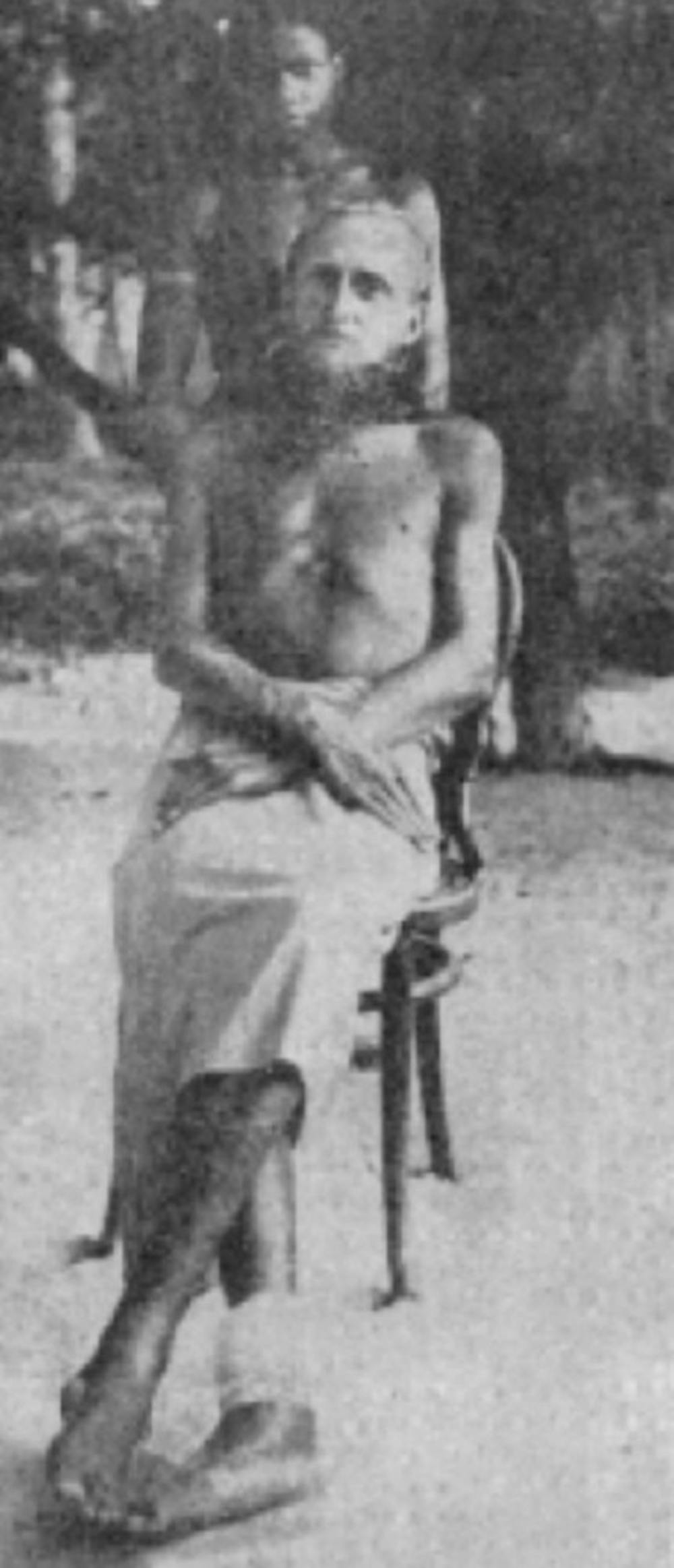Born in Germany in 1875, August Engelhardt lived in the foreboding years leading up to the catastrophic First World War. Except he didn’t care at all about that. What Engelhardt did care about was living in accordance with nature. To him that meant nudism and vegetarianism.
By vegetarianism, Engelhardt meant just eating coconuts. Only coconuts.
His theory was that coconuts grow high up in trees, making them closer to the sun and therefore to God. So by eating coconuts you become closer to God and also gain immortality on the side. This theory was coined “cocoivorism” and was described in a book he co-authored, titled A Carefree Future: The New Gospel; Glimpse into the Depth and Distance for the Selection of Mankind, for the Reflection of All, for Consideration and Stimulation.
This sort of behavior didn’t go over well in Victorian-era Germany where nudism was pretty scandalous and eating only coconuts was just weird. (Also, coconuts didn’t grow in Germany.) So in 1902 Engelhardt embarked on a voyage to the far-flung German colony of German New Guinea located in the South Pacific. Engelhardt showed up and bought a coconut and banana plantation from the Queen Emma Kolbe
Forsayth Company and lived as the only white man among 40 or so Melanesians.
Note that this is the grand time of imperialism for Europe and the awful time of imperialism for the rest of the world. Usually Germans who went abroad were civil servants, military personnel or merchants. Engelhardt was a hairy nude who only ate coconuts.
A New York Times article from 1905 described Engelhardt’s thoughts on going to German New Guinea.
“His plan was to have his sect worship the sun. He held that man was a tropical animal, not intended to live in caves called houses, but to wander, as Adam did, with the sun beating upon him all day and the dews of heaven for a mantle at night,” the Times article wrote. “Living such a life, he believed that the healing and curative powers of the sun would in time render a man so immune that sickness could be overcome.”
He wanted a coconut cult. It was to be a glorious utopian society where everyone lived in the nude, didn’t shave and ate coconuts for immortality. It was Sonnenorden (Order of the Sun). After sending reports back to Germany, Engelhardt managed to get people to leave their homes and join him. At its peak it was estimated that there were slightly less than 30 people living with him in German New Guinea.
It was not a very successful cult. Several people died, presumably from malnutrition, and many went back home to regret their life decisions. After these former cult members went back home, the local German governor banned any other prospective coconut-eaters from joining Engelhardt’s cult.
So now Engelhardt was alone and his mind and body were starting to go. Doctors weighed him at 86 pounds with skin ulcers everywhere when he finally went to a hospital. He added onto his theories by proclaiming that the brain is the most important organ because it was physically higher up in the body and that the brain nourishes itself when rays of sun hit hair roots.
In 1919, August Engelhardt was found dead on the beach. He lived to just over 40 years old.

















Please note All comments are eligible for publication in The News-Letter.